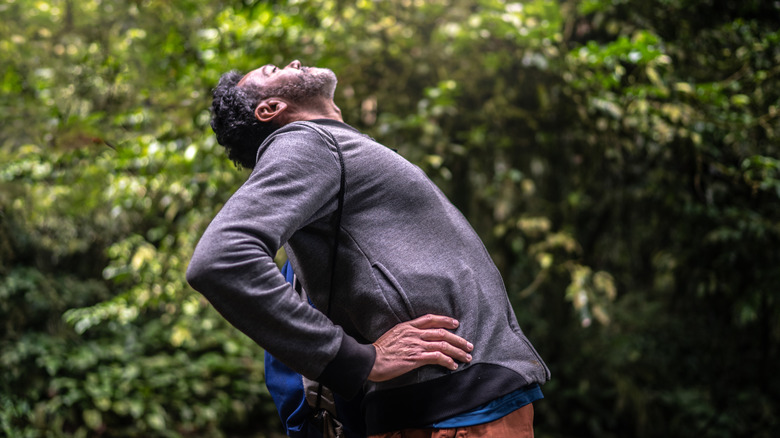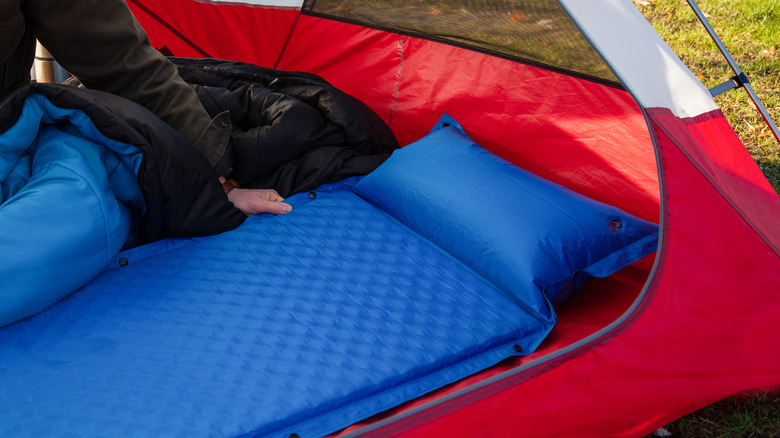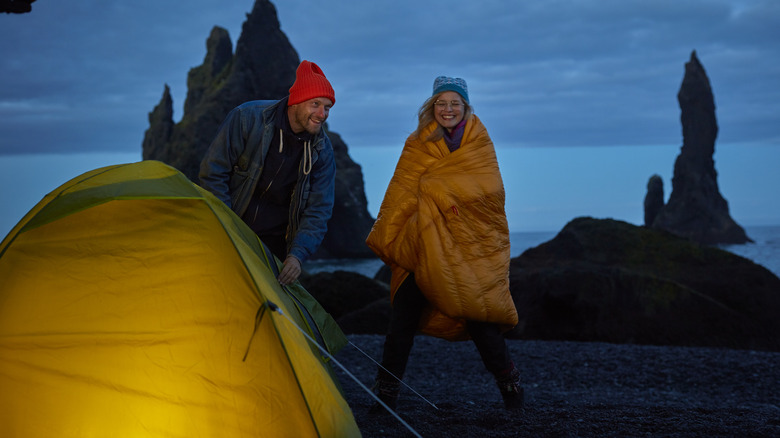Travel Guides Outdoor Adventures Camping
Jenna Busch
If you want to get in touch with the great outdoors, there is nothing better than a camping trip. You get to spend the night under the stars, roast marshmallows over a campfire, and wake up with the sun. It’s a beautiful experience … if you manage to get any sleep. That’s not as easy as it sounds if you don’t have the correct equipment. Sleeping directly on the tent floor is a camping mistake that can really mess up your back and keep you from a restful night.
Our bodies are used to sleeping in a bed, not on the ground. The human back doesn’t love soil and rocks; and unless you’re going glamping, that’s exactly what you’ll be sleeping on. Air mattresses are a good substitute, but they can be expensive. Plus, some camping styles don’t have an outlet to use an electric pump, and not everyone wants to spend forever blowing one up by hand. A sleeping bag is another option, but it isn’t enough cushion for most people. Let’s dive into how to sleep comfortably and keep your back safe during your camping trip.
What not to do

Fg Trade/Getty Images
It can be a big mistake to think you’ll be fine sleeping with just a blanket or two. Don’t assume a sleeping bag alone is going to keep you comfortable. They’re usually fairly thin, and the point of a sleeping bag is to keep you warm, not keep you lifted off of the surface of the ground. There is rarely enough padding to keep your back in good condition.
At home, some people sleep on the floor to help an achy back, but that’s a floor inside a house with no lumps, bumps, or rocks. A tiny pebble might not feel bad when you first lay down, but eventually, you’ll have a Princess and the Pea situation where it feels like a boulder under your butt. The Sleep Foundation’s website says, “Without adequate cushioning around pressure points like your hips and shoulders, sleeping on the floor can cause stiffness and discomfort.” Add in the fact that it gets pretty cool at night, and it’s a recipe for a stiff body in the morning. That’s not what you want when you’re far away from a doctor and likely planning some physical activity for the next day. So what should you do to combat this for a good night’s sleep in the open air (or a tent)?
Pick padding for your slumber

Ashley-Belle Burns/Shutterstock
Packing some sort of padding is the way to go. Even if you don’t end up bringing a sleeping bag and just use blankets instead, it’s important to have something substantial between your poor spine and the unforgiving ground. There are a ton of pads out there. You can pick up an inflatable one (though, remember that it has to be inflated somehow) at most camping and outdoor supply shops. Inflatable pads can be pricey though, so keep that in mind. Self-inflating types do exist, but they can run between $50 and $300. There are also “closed-cell foam” pads, though these are apt to be less comfortable and a little stiff.
You also want to consider the temperature, and padding is going to keep you off the cold ground. If your makeshift bed is still too cold, warm up first with a few jumping jacks before bed or drink a warm beverage. You can also use warm stones from your campfire, like the warming bricks that people used to use in their beds in the Medieval and Renaissance eras, or use a hot water bottle wrapped in a towel.
What if you don’t have a sleeping pad?

platinumArt/Shutterstock
So what happens if you don’t have a pad and can’t get one? You have a few options here. If you’re camping near your car and you can put the back seat down, you can sleep in your car. You’ll still have some lumps and bumps to deal with, but it won’t be as bad as the ground. If you have extra blankets with you, you can roll yourself in them or fold them in half underneath you.
One of our favorite tips is something you might already own: a yoga mat. The thicker ones work really well here, but really, anything that is going to keep your off the cold ground and the uneven surface is going to help. Plus, you can get yoga mats pretty inexpensively.
Another unique option: If you’re camping near water and you happen to have a pool float already blown up, there is no reason you can’t sleep on that. Just make sure you keep any zippers from your sleeping bag away from the float so it doesn’t get punctured. Wrap the zipper up in a soft hair tie or put a sock around it and secure with an elastic band.
Don’t like any of these options? You can even use foam floor padding on the bottom of your tent to make a soft makeshift floor!

